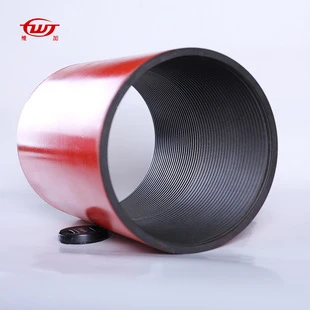- Afrikaans
- Albanian
- Amharic
- Arabic
- Armenian
- Azerbaijani
- Basque
- Belarusian
- Bengali
- Bosnian
- Bulgarian
- Catalan
- Cebuano
- Corsican
- Croatian
- Czech
- Danish
- Dutch
- English
- Esperanto
- Estonian
- Finnish
- French
- Frisian
- Galician
- Georgian
- German
- Greek
- Gujarati
- Haitian Creole
- hausa
- hawaiian
- Hebrew
- Hindi
- Miao
- Hungarian
- Icelandic
- igbo
- Indonesian
- irish
- Italian
- Japanese
- Javanese
- Kannada
- kazakh
- Khmer
- Rwandese
- Korean
- Kurdish
- Kyrgyz
- Lao
- Latin
- Latvian
- Lithuanian
- Luxembourgish
- Macedonian
- Malgashi
- Malay
- Malayalam
- Maltese
- Maori
- Marathi
- Mongolian
- Myanmar
- Nepali
- Norwegian
- Norwegian
- Occitan
- Pashto
- Persian
- Polish
- Portuguese
- Punjabi
- Romanian
- Russian
- Samoan
- Scottish Gaelic
- Serbian
- Sesotho
- Shona
- Sindhi
- Sinhala
- Slovak
- Slovenian
- Somali
- Spanish
- Sundanese
- Swahili
- Swedish
- Tagalog
- Tajik
- Tamil
- Tatar
- Telugu
- Thai
- Turkish
- Turkmen
- Ukrainian
- Urdu
- Uighur
- Uzbek
- Vietnamese
- Welsh
- Bantu
- Yiddish
- Yoruba
- Zulu
Optimizing Casing Collar Performance for Enhanced Well Integrity and Efficiency
Understanding Casing Collars in Oil and Gas Exploration
In the world of oil and gas exploration, drilling operations are complex and require a variety of specialized equipment to ensure efficiency, safety, and success. Among these pieces of equipment, casing collars play a crucial role. This article will delve into the basics of casing collars, their types, functions, and significance in the drilling process.
What are Casing Collars?
Casing collars are components used in the completion of oil and gas wells. They are thick metal rings that are typically welded or threaded onto the casing pipe. The primary function of casing collars is to provide structural support and assure the integrity of the casing throughout the drilling process, especially while the well is being completed or during production.
Casing is essential in drilling wells because it prevents the collapse of the wellbore, protects groundwater from contaminants, and supports the drilling process. Casing collars serve as connection points for various tools and equipment in the wellbore, thus ensuring the optimal functionality of the entire drilling setup.
Types of Casing Collars
There are several types of casing collars used in the oil and gas industry, each designed for specific applications
1. Casing Centralizers These collars are fitted to the casing string to maintain a uniform distance between the casing and the wellbore. Centralizers are essential for ensuring that the casing is positioned correctly for cementing, which is crucial for well integrity.
2. Casing Hangers Used in the completion phase of the well, casing hangers support the casing string and allow for the threading of additional equipment if necessary. They play a vital role in suspending the casing in the wellbore.
3. Long-Range Casing Collars Designed for deepwater and difficult-to-reach exploration sites, these collars are specialized for challenges posed by high pressures and temperatures.
4. Expandable Casing Collars These innovative collars allow for the expansion of casing after it has been set in place. This technology can optimize the fit of the casing and increase wellbore stability.
casing collar

Functions of Casing Collars
Casing collars serve multiple essential functions in the drilling process
- Structural Support By providing additional strength and stability to the casing, collars help maintain the wellbore's integrity. They are essential in areas where geological conditions may lead to potential collapses.
- Facilitating Cementing The collars ensure that the casing is adequately centered in the well. Centralized casing is crucial for effective cementing, which forms a seal that prevents fluids from migrating between the well and surrounding formations.
- Connection Points Casing collars serve as connection points for various drilling tools and accessories, allowing operators to use different equipment without compromising the casing's integrity.
- Pressure Regulation Some collars are designed to withstand extreme pressures and temperatures, making them vital components in deepwater and high-pressure drilling operations.
Importance in Drilling Operations
The importance of casing collars cannot be overstated. They facilitate safe and efficient drilling operations that are essential for successful oil and gas exploration. The choice of casing collar can significantly influence the success of a well. Properly designed and installed casing collars help to mitigate risks of well failures, environmental hazards, and costly operational interruptions.
Moreover, advancements in casing collar technology continue to evolve, leading to improved designs that enhance their performance and reliability. The development of smart collars with monitoring capabilities allows operators to gather critical data during drilling operations, further ensuring safety and efficiency.
Conclusion
Casing collars may seem like small components in the grand scheme of drilling operations, but their significance cannot be overlooked. They provide essential support, ensure well integrity, and facilitate successful oil and gas extraction. As technology continues to advance, we can expect to see further innovations in casing collar design, ultimately leading to more efficient and safe drilling operations. Understanding the role and function of casing collars is crucial for anyone involved in the oil and gas industry, as they are foundational to successful and sustainable exploration practices.
-
Tubing Pup Joints: Essential Components for Oil and Gas OperationsNewsJul.10,2025
-
Pup Joints: Essential Components for Reliable Drilling OperationsNewsJul.10,2025
-
Pipe Couplings: Connecting Your World EfficientlyNewsJul.10,2025
-
Mastering Oilfield Operations with Quality Tubing and CasingNewsJul.10,2025
-
High-Quality Casing Couplings for Every NeedNewsJul.10,2025
-
Boost Your Drilling Efficiency with Premium Crossover Tools & Seating NipplesNewsJul.10,2025







